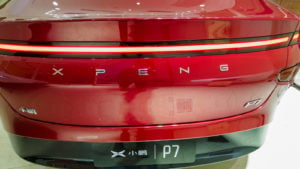3 Flying Car Stocks for Getting Rich in 2023
The demand for flying car stocks is rising, fueled by the imminent emergence of the first air vehicles within the next two years. Interest is growing amidst the intense competition among several countries vying for market dominance.
In Japan, tech leaders plan to introduce flying taxis by 2025. SkyDrive aims to transport passengers to the Osaka World Expo. Japan Airlines (OTCMKTS:JAPSY) intends to operate commercial air taxi flights connecting airports in Mie.
In France, the German company Volocopter is preparing to provide air taxi services during the 2024 Olympics.
Also, Aeroports de Paris (OTCMKTS:ARRPY) will be launching an air taxi service in the UAE, where the government aims to introduce flying taxis by 2026.
U.S. company Joby Aviation (NYSE:JOBY) is undergoing certification processes in both the U.S. and the U.K. Joby Aviation envisions providing air taxi services at airports in New York and Los Angeles. Preorders for flying cars are already in the hundreds.
Clearly, the excitement and anticipation is building. If you want to get in on the flying car boom and see your portfolio take off, here are some of the best flying car stocks to buy now. These picks will be able to launch the first flying cars within the next two years.
Promising Flying Car Stocks: Xpeng (XPEV)

According to Morgan Stanley, the flying car market will surpass $1.5 trillion by 2040, with China expected to control 29% of this market. Xpeng (NYSE:XPEV), a Chinese automaker that has been manufacturing electric cars since 2017, is a potential candidate for the share. Xpeng ranked among the top performers in terms of turnover on the Hong Kong Stock Exchange last year. It accounted for 17% of the total trading volume.
Backed by notable investors, including Xiaomi, Alibaba Group, and Sequoia Capital, the company operates three factories. The total combined production capacity is an impressive 400,000 vehicles per year.
In October 2022, Xpeng Aeroht, a subsidiary of Xpeng and Asia’s largest flying car company, conducted the maiden flight of the Xpeng X2 flying car in Dubai. The Xpeng X2 is a two-seat flying car designed for low-altitude flights, primarily for sightseeing and medical purposes.
During Xpeng Tech Day on Oct. 24, the company unveiled a new model of a flying car with folding propellers. That means it’s capable of both road travel and flight. The company plans to reveal a finalized concept in the near future. The starting price is expected to be below 1 million yuan, according to TechCrunch.
Xpeng has demonstrated impressive growth compared to its closest competitors, such as Nio (NYSE:NIO) and Li Auto (NASDAQ:LI). This can be attributed to Xpeng’s lower vehicle prices.
Those considering investing in flying car stocks should take into account that currently, Xpeng remains unprofitable and does not pay dividends. Even upon achieving profitability, it is unlikely that dividend payments will commence quickly, as the company will prioritize reinvesting in growth.
Guangzhou Automobile Group (GNZUF)

Another Chinese company — the state-owned Guangzhou Automobile Group (OTCMKTS:GNZUF) and the fifth-largest car producer in China — is actively involved in the development of flying cars.
During the GAC Tech Day event held in China in June, the company unveiled a prototype of its flying passenger aircraft known as Gove. The name “Gove” is derived from the initials of GAC and represents the concept of being on the go, vertical, and electric. This showcases GAC’s commitment to exploring innovative mobility solutions and venturing into the exciting realm of flying cars.
GOVE combines a self-propelled ground platform and a detachable cabin to move a single passenger through the air. The focus is on vertical takeoff and landing, for which the aircraft is equipped with six electric motors with propellers. They are folded on the rods when the vehicle moves along the earth’s surface.
GAC has yet to reveal the starting price and sales date. GAC itself is ready to consider both hydrogen and ammonia as alternative fuels. In the first case, like Toyota (NYSE:TM), it expects to use hydrogen fuel in modified internal combustion engines.
Joby Aviation (JOBY)

June became the month of achievement for another company. The Federal Aviation Administration (FAA)California-based issued Joby Aviation Inc (NYSE:JOBY) a special certificate to start flight testing. The company aims at delivering its first electric vehicle take-off and landing aircraft (eVTOL) by 2024. They also plan to launch a commercial air taxi service by 2025.
Also, the company expects to deliver the first vehicle prototype to the U.S. Air Force in California in 2024. This will likely be the first eVTOL delivered to a customer. The agency has invested “up to $131 million” in Joby as part of the Agility Prime program. This is aimed at increasing the U.S. technological potential and using these devices for military purposes. The pilot production line was built with the assistance of automaker Toyota. TM provided a $400 million investment and technology support to the startup.
And so, the Dubai administration is highlighting the Joby Aviation prototype as a potential candidate for a flying taxi program scheduled for a launch by 2025. Full certification of the devices is scheduled for 2024, with mass production for 2025. However, the process may still be delayed because the manufacturer has to confirm that the devices are as safe as modern airliners.
Joby Aviation stock trades at $9.85 per share. Joby Aviation’s main shareholders include Intel (NASDAQ:INTC) and Delta Air Lines (NYSE:DAL).
On the date of publication, Julia Magas did not hold (either directly or indirectly) any positions in the securities mentioned in this article. The opinions expressed in this article are those of the writer, subject to the InvestorPlace.com Publishing Guidelines.

